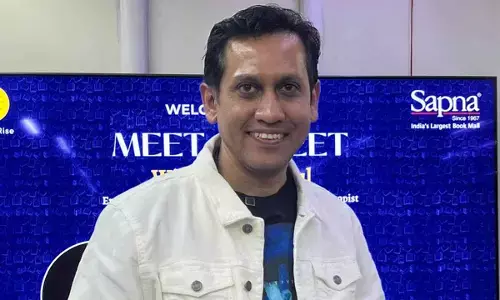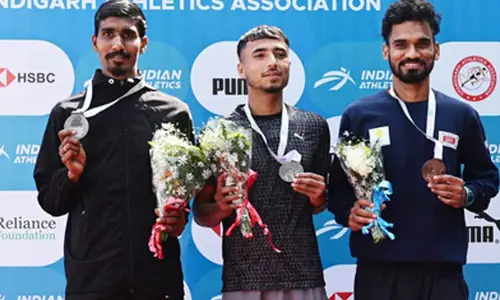Tips for Cancer Awareness

Cancer is the second-biggest cause of death worldwide, taking the lives of 10 million people annually.
Cancer is the second-biggest cause of death worldwide, taking the lives of 10 million people annually. A staggering reality is that over 40% of these cancer-related deaths are preventable, with direct connections to modifiable risk factors like smoking, alcohol consumption, inadequate diet, and sedentary lifestyles. As we observe World cancer day today, let’s explore deeper into practical tips for cancer awareness and prevention that can make a difference in the fight against cancer.
Understanding Cancer: Cancer, a group of diseases characterized by abnormal cell growth, affects the body in various ways. Understanding these complexities is crucial in demystifying the disease and dispelling associated myths.
The Importance of Early Detection: Early detection is pivotal for successful treatment. Regular screenings, like mammograms and colonoscopies, are essential. Health check-ups and noticing body changes can lead to early cancer diagnosis, significantly improving outcomes.
Risk Factors and Prevention: Lifestyle choices significantly impact cancer risk. Smoking, linked to lung, mouth, and throat cancers, is a major risk factor. Avoiding tobacco in all its forms is critical for cancer prevention. Additionally, exposure to environmental toxins and certain occupational risks can also increase cancer risk, emphasizing the need for protective measures in high-risk environments.
Healthy Diet for Cancer Prevention: A diet rich in fruits, vegetables, whole grains, and beans can reduce cancer risk. Limiting refined sugars, animal fats, and processed meats is also advisable. Moderation in alcohol consumption is crucial, as excessive alcohol increases various cancer risks.
Maintaining a Healthy Weight and Physical Activity: Maintaining a healthy weight is essential for reducing the risk of breast, prostate, lung, colon, and kidney cancers. Regular physical activity is beneficial for overall health and cancer prevention. Integrating physical activity into daily life, whether through exercise or active hobbies, is crucial.
Regular Cancer Screenings: Screenings are a vital tool in early cancer detection. Discussing screening options with healthcare providers is important for personalized cancer prevention strategies.
Skin Cancer Prevention: Preventing skin cancer involves sun protection measures like staying in the shade, wearing protective clothing, and using broad-spectrum sunscreen.
Symptoms Awareness: Awareness of symptoms like unexplained weight loss, fatigue, and unusual bleeding is critical for early detection. Understanding these signs leads to timely medical consultations and interventions.
Support for Patients and Families: Cancer not only affects patients but also their families. Emotional, physical, and financial challenges are common. Access to support networks, counseling, and financial aid resources is vital for coping with the disease.
Advancements in Research and Treatment: Innovations in cancer research and treatment, such as immunotherapies and personalized medicine, offer new hope in cancer care, changing the outlook for many patients.
Global Perspective and Inequalities: Cancer's impact varies across populations, with disparities in healthcare access worldwide. Addressing these inequalities is a critical part of global cancer control efforts.
Role of Government and NGOs: The roles of governments and NGOs are indispensable in cancer control, including prevention, research, and patient support. Their efforts are fundamental in driving policies and providing resources for cancer care and research.
Vaccination as Cancer Prevention: Vaccinations against Hepatitis B and HPV are effective in preventing cancers linked to these viruses. These vaccines are vital tools in the prevention of liver cancer and cervical and other genital cancers.
Avoid Risky Behaviors: Practicing safe sex, limiting sexual partners, and not sharing needles are crucial in reducing the risk of infections like HIV or HPV, which can lead to cancer.
Regular Medical Care: Regular medical care, including self-exams and screenings for various cancers, increases the chances of early detection and successful treatment. Personalized screening schedules based on individual risk factors enhance effective cancer prevention.
Conclusion and Call to Action: Engaging in proactive health management, supporting awareness activities, and contributing to cancer research are vital steps in cancer prevention. These measures significantly reduce risks and promote overall health and well-being.
In the quest for a world free from the clutches of cancer, knowledge is our most potent weapon. Embracing a holistic approach, we recognize that early detection, lifestyle choices, and advancements in research collectively contribute to the arsenal against cancer. As we conclude this exploration into cancer awareness, let it serve as a call to action. Engage in proactive health management, support awareness initiatives, and contribute to cancer research efforts.
(The author is M.B.B.S., M.D., M.H.P.E., Ph.D. Medical Biochemistry, FAIMER Fellow Associate Dean for Academic Affairs, Professor Biochemistry, American University of Antigua College of Medicine)









